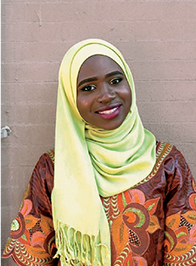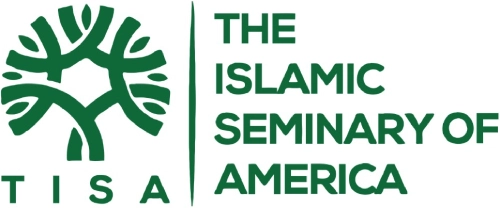We declare our right on this earth . . . to be a human being, to be respected as a human being, to be given the rights of a human being in this society, on this earth, in this day, which we intend to bring into existence by any means necessary.
—Malcolm X
In Islam, all of humanity is equal in the eyes of God. Righteousness and good actions are the only qualities that make someone virtuous, not their race, skin color, lineage, or nationality
SOURCE: Muslims of the World by Sajjad Shah

I remember the first time that a South Asian friend of mine used the N-word. Actually, there were many “first times” because with each utterance of the word, I remember the discomfort that followed, and how quickly I moved the conversation along. I just didn’t want to deal with what it all meant. I didn’t want to confront the reality of a South Asian Muslim man using the N-word in front of his black Muslim friend and what that meant about our relationship and the broader dynamics of Blackness within the Muslim community.
I was not in the habit of calling people out—partly because I tried to avoid confrontation, but also because I was afraid to feed into the stereotype of being an “angry black woman,” especially in a Muslim space where my “Muslimness” is constantly questioned because of the color of my skin. Our community is still baffled when they encounter a black Muslim Hafizah or those whose Arabic “is so perfect Mashaallah,” because we live in a society where Blackness is equated to less than. As black people, we are told we are not smart enough, that we don’t try hard enough, that we are just not Muslim enough. So as a young woman still molding her identity and longing for a space in her community, I didn’t want to create tension and sever relationships. I felt that I had to be the black Muslim girl who was present enough to be tokenized but submissive enough to not make too much noise, or ruffle too many feathers. And I did that for a long time. I sat silent as I heard the N-word being used left and right by my South Asian and Arab Muslim “friends.” It came to a point, however, where I could no longer turn a deaf ear. I had heard too many uses of the N-word by non-black Muslims, and I had had enough.
I finally mustered the courage to say something to my South Asian friend. For so long, I had made excuses for him and people like him about how it was okay for them to use the word if they grew up in the “hood.” I didn’t realize the lies of complacency that I was telling myself in order to maintain my sense of having a “safe space” in the community. But how could the community be a sanctuary for me when my feelings and experiences were denied by those who are meant to be my brothers and sisters in Islam? I expressed to my friend in countless conversations how the word made me and others around me feel. I described the history of the word and how his residence in an urban setting did not justify his use of it. Simply put, I wanted to shout, “YOU ARE NOT BLACK.” I could feel myself almost pleading with him, trying to get him to understand. I wanted to shake him, to make him realize how his apathy deeply hurt me and made me feel invisible as a black Muslim woman.
People don’t realize how exhausting it is dealing with the realities of being black in America and—as if that isn’t enough—having to constantly explain your experiences to others in order to feel validated. It’s tiring. I shouldn’t have to put myself in a vulnerable place to get people to empathize and to understand that my struggles are real, yet I am constantly made to do so.
The use of the N-word is an issue that has not been completely addressed within the Muslim community. For so long, I couldn’t find courage to address it face on; my internalization of the stereotypes surrounding my black femaleness held me back. Yet I also knew my silence did nothing to help the matter. And so after years of racist trauma within Muslim spaces and months of critical reflection, I finally wrote a Facebook post to the community:
Using the N-word is not okay. Whether it be in conversation with friends, singing along to song lyrics, or use in hashtags. If you are not black, you have no right/are not entitled to use the term.
It’s not cool, cute, or funny in any way. The fact that non-black folks think they can use the N-word as if it has no impact on their black “friends” goes to show the level of ignorance that still exists within those communities.
More importantly, y’all fellow South Asian and Arab folk need to call each other out when it happens. It’s not enough to say, “at least I don’t use it,” but then sit silent when you witness your friends doing so—you are equally responsible for allowing it to become a norm in the Arab/South Asian communities.
We can’t preach antiracism within the Muslim community if this continues to be an issue. Words matter, and they speak volumes to the level of consciousness within our community.
As I typed this message, my hands were shaking, my heart racing. Never had I been so up-front, so out there about an issue that hit so close to home. It was nerve-racking. But after posting it, I felt overtaken by an instant sense of relief. I felt the burden of being a black Muslim woman suddenly lessen as I now placed the onus on the Muslim community to assist me in carrying this weight. I affirmed my own pain and experiences by speaking up and making it known that I do exist and that I will not be silenced.
As Muslims, we love to rally against all things Islamophobia—as we should—but in the same breath, we disregard other issues of racism and discrimination that pervade our community. It’s not enough to say that you are not racist yet be silent in the face of racism’s manifestation. Just as xenophobia and Islamophobia require inner work and reflection by their perpetrators, so does racism. Islam preaches diversity and inclusion, but we need to ask ourselves: Are we upholding that standard? How are we, in everyday practice, being intentional about making acceptance and antiracism the norm in all of our interactions, both within and outside of the Muslim community? How are we creating spaces for black Muslims to be authentic in their Blackness and Muslimness, and to feel comfortable in sharing their stories? These are the kinds of critical questions that we as Muslims need to answer if we wish to truly live as one Ummah. Not just in the feel-good, superficial sense of the phrase, but in a way that acknowledges and embraces each person’s humanity.
